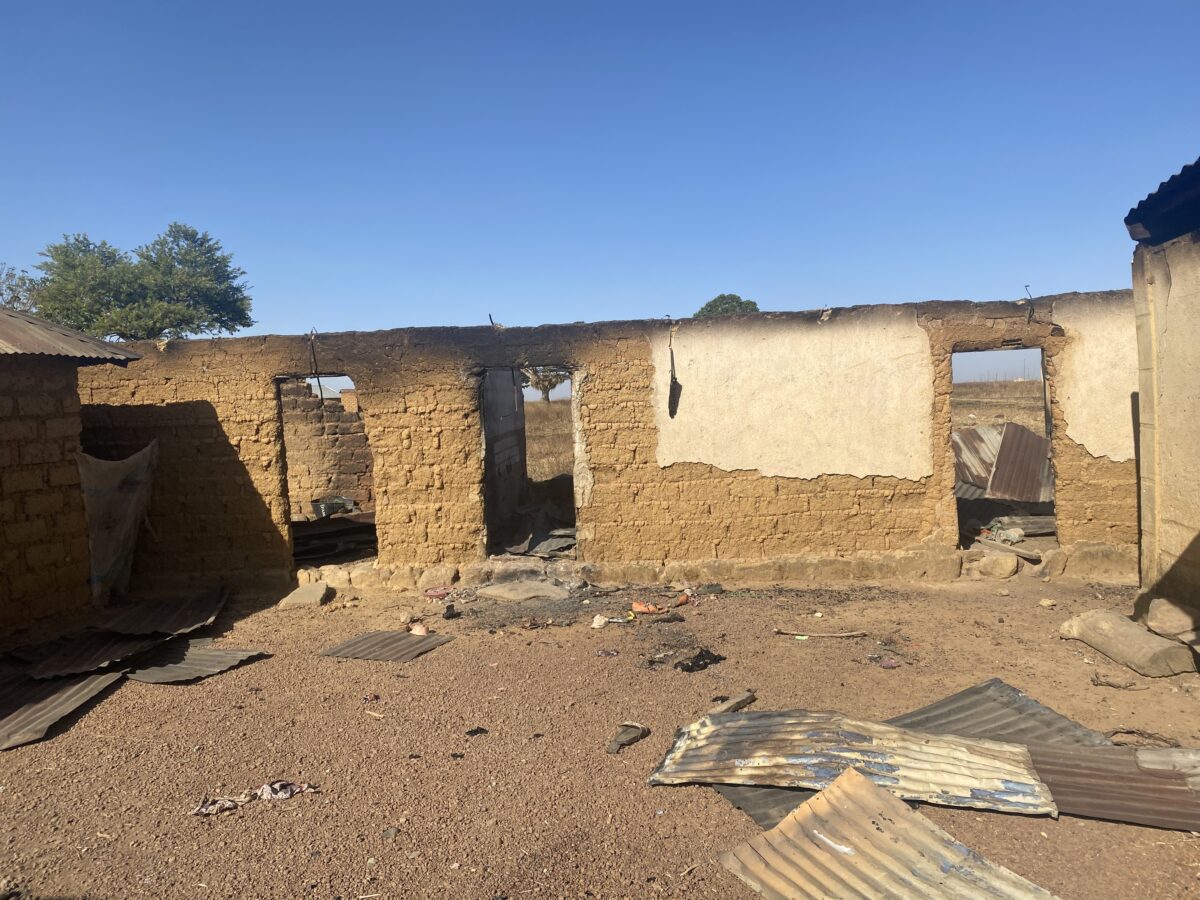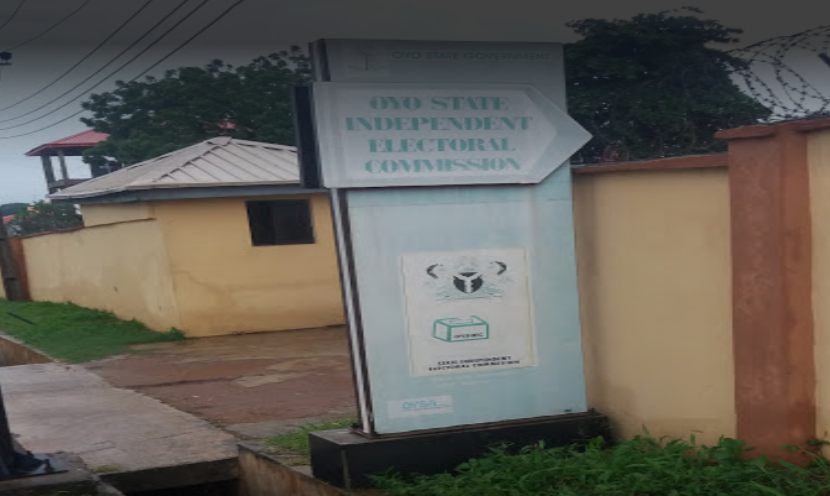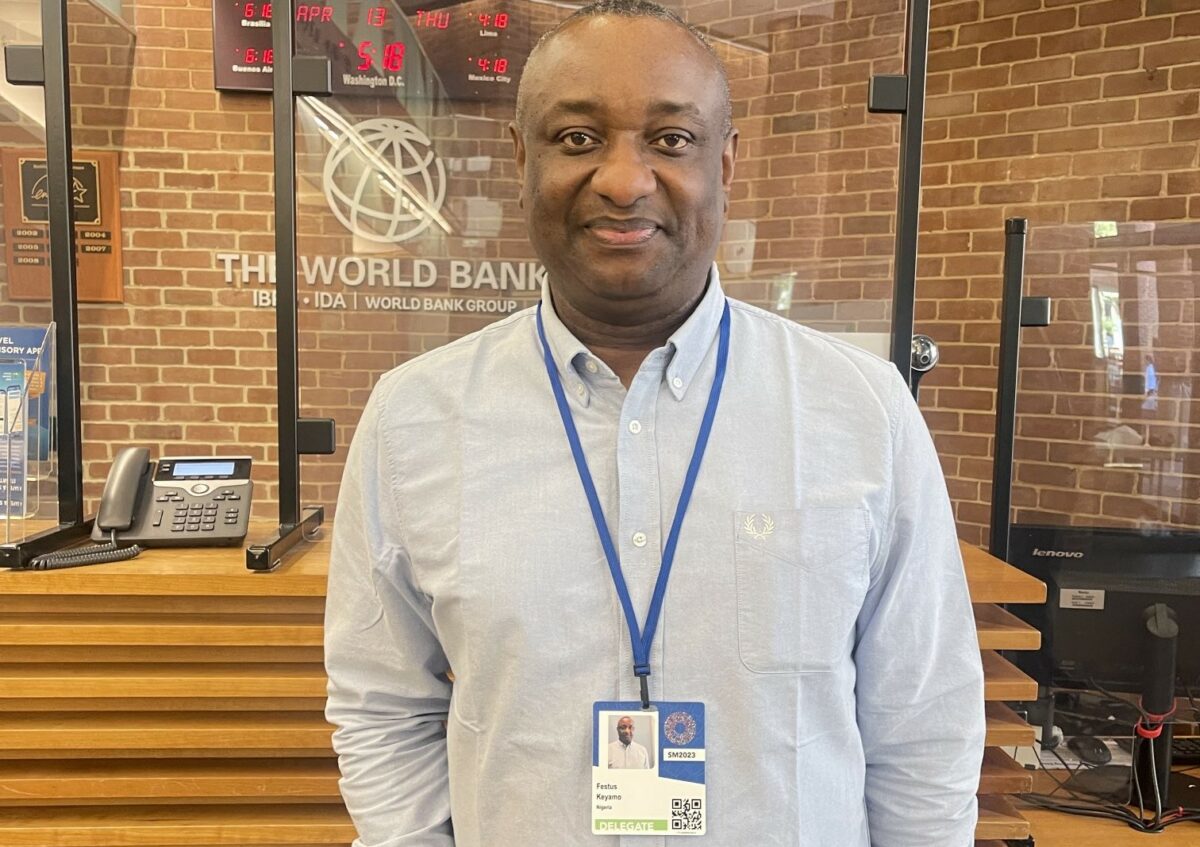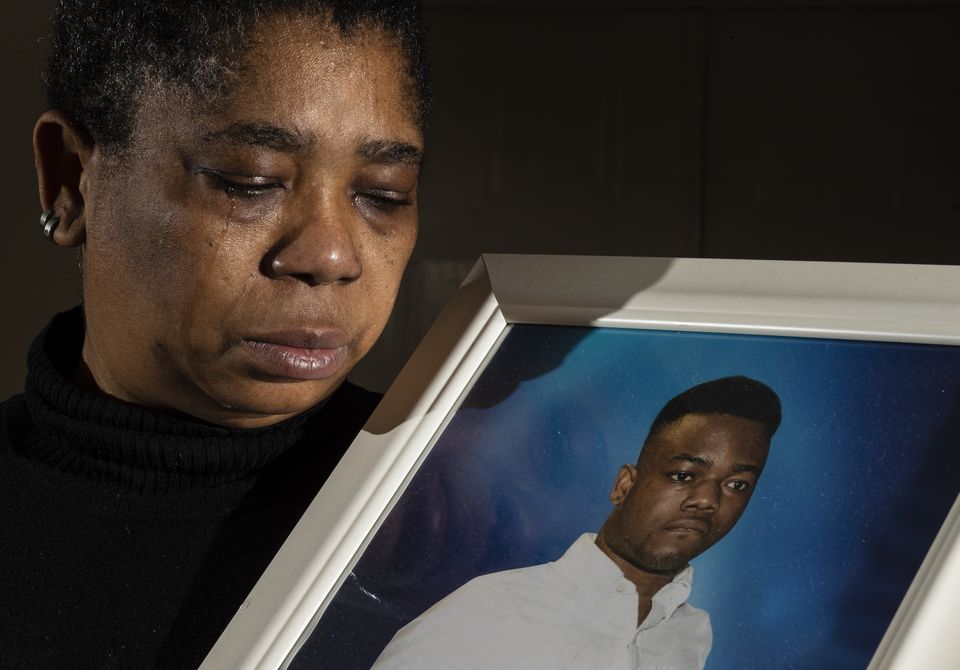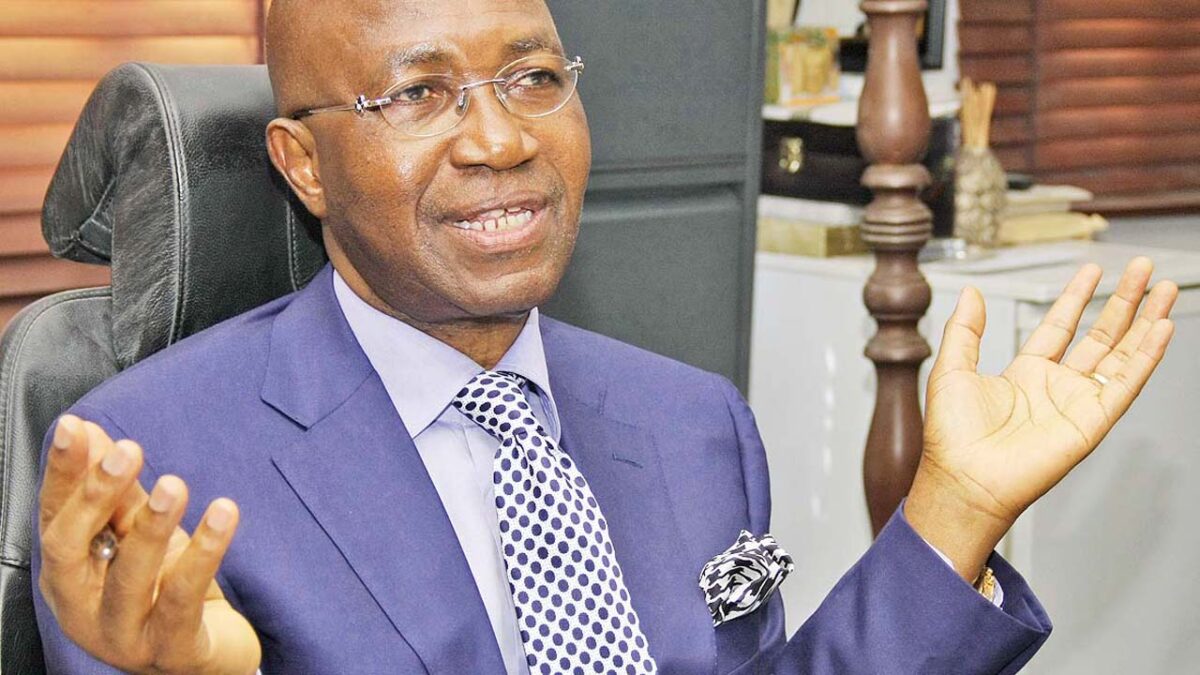It’s close to midnight, and something evil is lurking in the dark. Under the moonlight, you see a sight that almost stops your heart. You try to scream, but terror takes the sound before you make it. You start to freeze as horror looks you right between the eyes. You’re paralysed… and no one’s going to save you from the beast about to strike. -Michael Jackson
The time was 5:30 pm on December 24, when the armed Fulani militia attacked Darwt, a village in the Barkin Ladi Local Government Area (LGA) of Plateau State. Before Sunday Dennis, a farmer with a walrus moustache, and other men could comport themselves, the invaders had besieged the village and begun to baptise it with gunshots. The peaceful calm of Christmas Eve was shattered, and everyone ran for dear life.
By the time the chaos settled, Darwt was in ruins. The invaders killed seven residents, including Michael Ali, his wife, their newborn, who was strapped to her back, the woman they shot several times while she was running to safety, and the man whose leg they dismembered and left to die in pain. Then there was Sunday Dennis’ son.
“I saw my son lying helplessly on the floor. Some of the axe-waving men had cut him three times at the scruff of his neck and left him for dead. But God saved my son. He’s now at the hospital. He will make it,” Dennis told FIJ.
During the attack, the Fulani militia reduced some of the houses in Darwt to ashes and pillaged their farm produce for the year. He could tell this tale with precision because his aged mother, who hid inside a primary school classroom in the village, saw the horror unfold and relayed it to him when he returned to the village. But it did not end there.
“Two days later, they returned with a renewed mind to intensify their campaign of destruction. They did this screaming, ‘Allah Akbar,’ and they were in troops,” Dennis recalled, his voice trembling with sorrow.
A RED-LETTERED DECEMBER
Between Christmas Eve and Boxing Day, armed men, whom the survivors described as “Fulani militia,” “invaders,” “marauders,” or “herdsmen,” killed more than 160 people in Bokkos and Barkin Ladi local government areas in Plateau State, and 23 others were killed from January 1 to 31. In the grievous attack, 30 villages were attacked almost at the same time by armed Fulani men with the help of neighbouring Fulani dwellers, some sources said.
During the attacks, many villagers lost their houses to the raging inferno that sprung from the carbide with the invaders; cars were burned; harvested farm produce was looted as spoils of their soulless attacks; farmlands were destroyed; and livestock were stolen – all worth an inestimable amount of naira. In the end, more than 19,000 people were sacked out of their houses and forced to live in camps for displaced people and elsewhere in the state. In Bokkos town alone, 10,185 people became IDPs.
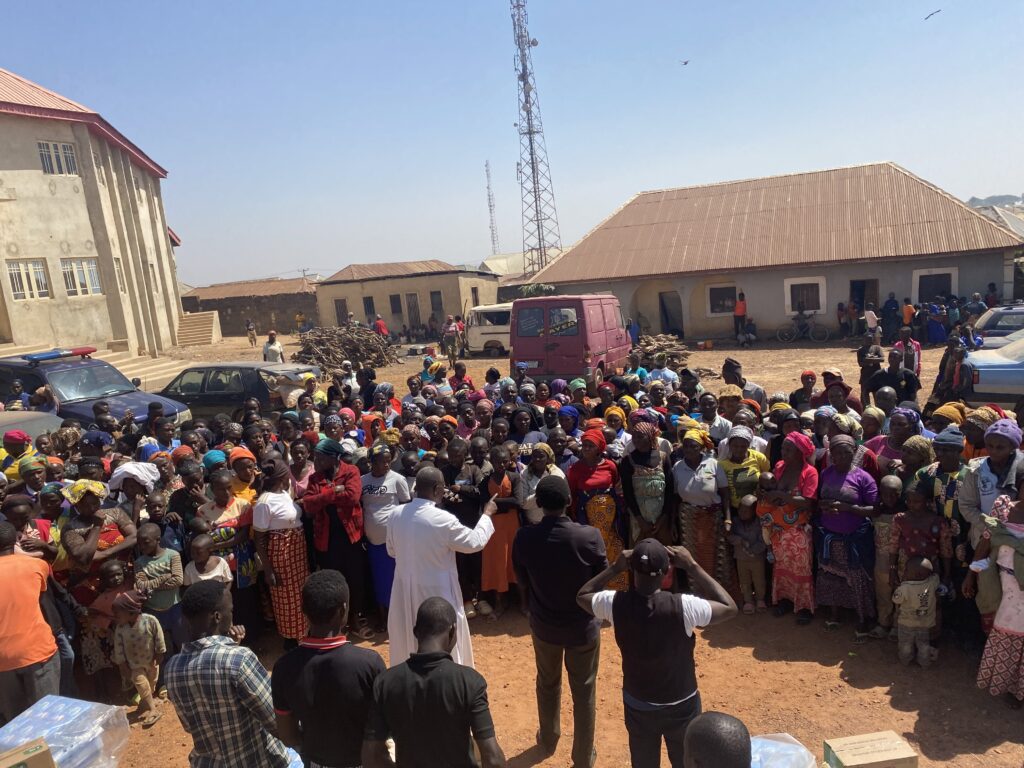
As of January, the internally displaced people residing in Bokkos found shelter in 13 centres in Bokkos town, as follows: Church of Christ in Nations (COCIN) Central, St. Thomas Catholic Church, Christ Apostolic Chuch (CAC) Central Church, COCIN Bishara 1 Takai, CAC Takai, COCIN Takawe, COCIN Ney Layout, CAC Tarangol, COCIN Tading, Anglican Church Bokkos, ECWA Church Bokkos, CAC Nabot, and Nasara Baptist Church.
As of this reporter’s visit, 330 houses were burned in the affected villages in Bokkos, while the count for the four communities affected in Barkin Ladi was 120. In Lungai, 120 water pumps and 50 vehicles were destroyed. This reporter’s count of injured people stood at 51. This reporter learned of the deaths of 17 pastors in the attacks, including Pastor Gideon Luka of Mbong, who was killed alongside his wife and five daughters: Hanatu, Kaiko, Bhwedat, Palang and Nimat.
IN THE SHADOW OF TRAGEDY
Residents of the Miyanga village in Bokkos LGA who knew Juliet Jalang, 64, some months before December 2023, could testify of her vivacity until death stole the joy and proof of her motherhood. Now a shadow of her former self, Juliet stands amid the ruins of her once-thriving home to mourn her sons, Emmanuel Jalang, 34, and Fidelis Jalang, 30.
Unlike other neighbouring communities, the Miyanga people were aware of their impending and eventual doom before the malevolent attacks by the Fulani militia. All the men in the village, including Juliet’s two sons, succumbed to the instinctive urge to ensure the safety of their wives and children.
With people from other neighbouring villages running to Miyanga for safety and the decided marauders following after them, there was only little Emmanuel and Fidelis could do. As soon as the Fulani militia arrived at the village, it became hard for her grandchildren, the eldest being eight, to run freely. Her sons had no choice but to lay their lives down for her and their wives and kids.
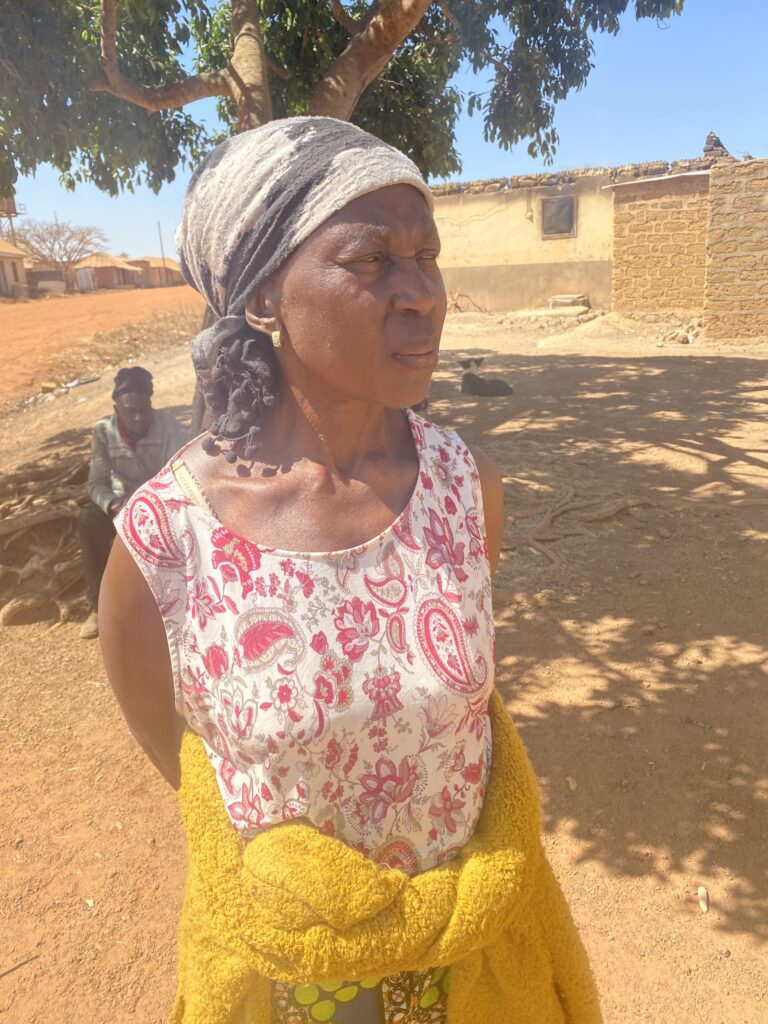
“My sons did not go down without putting up a fight. They did not cower but instead shielded me, their kids, and their mothers until we ran out of the house for safety,” Juliet recounted solemnly. “Some men in the village also resisted the Fulanis, but they were later overpowered. The next time I saw my boys, they had been savagely hacked to death, and our house had been burned in part. The Fulanis left me with nothing but sorrow.”
Before her sons got ensnared in the dance of death, they were the pillars of her family. Although they were married, her sons lived with her and provided for the entire family, but this will no longer be the case.
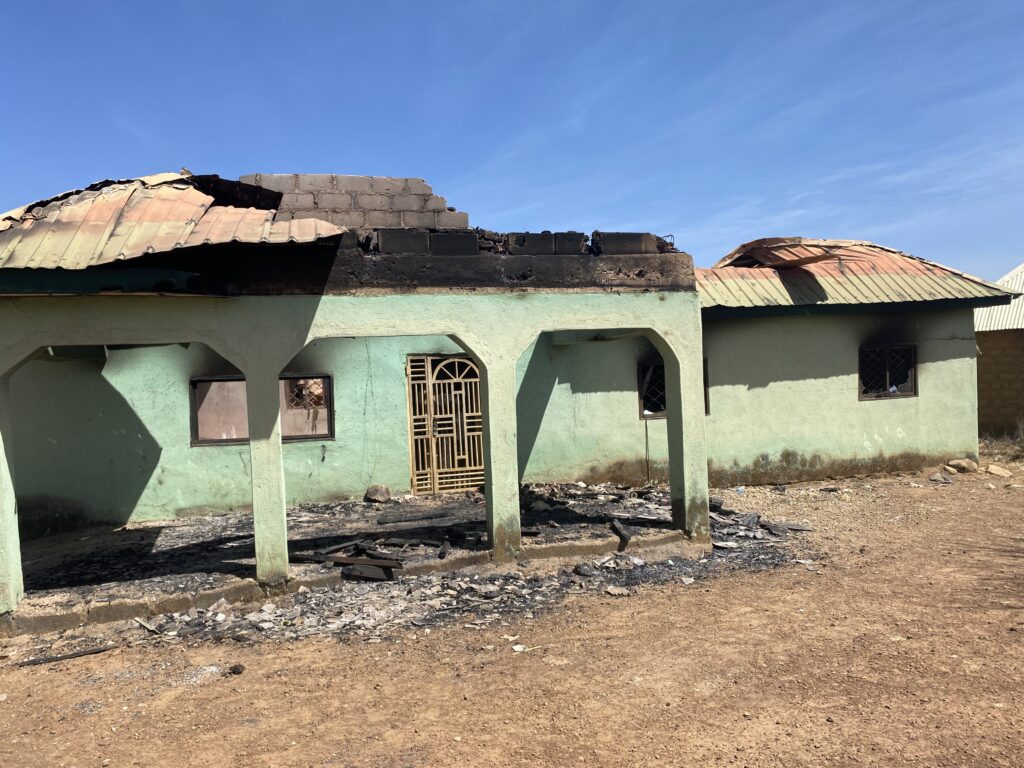
Still burdened by the weight of her grief, Juliet said she did not know how to move on but believed that God would come through for her and her family, who were temporarily at an internally displaced persons camp in Bokkos.
A WORTHY SACRIFICE
Juliet was not the only person who lost jewels of inestimable value in the ferocious attack in Miyanga on Christmas Eve. Dickson Mutong, the Miyanga youth spokesperson, told FIJ that 17 people in all were slaughtered in his village that night – 13 Miyanga residents and four people who ran there for safety.
60-year-old Tabitha Machif still felt some guilt after Mangut Machif, her husband, died, but she knew that there was nothing she could have done differently. The man she had called her husband for more than 35 years was slaughtered like a sacrificial lamb and left to writhe in a burning house lit by the Fulani until his soul left him.
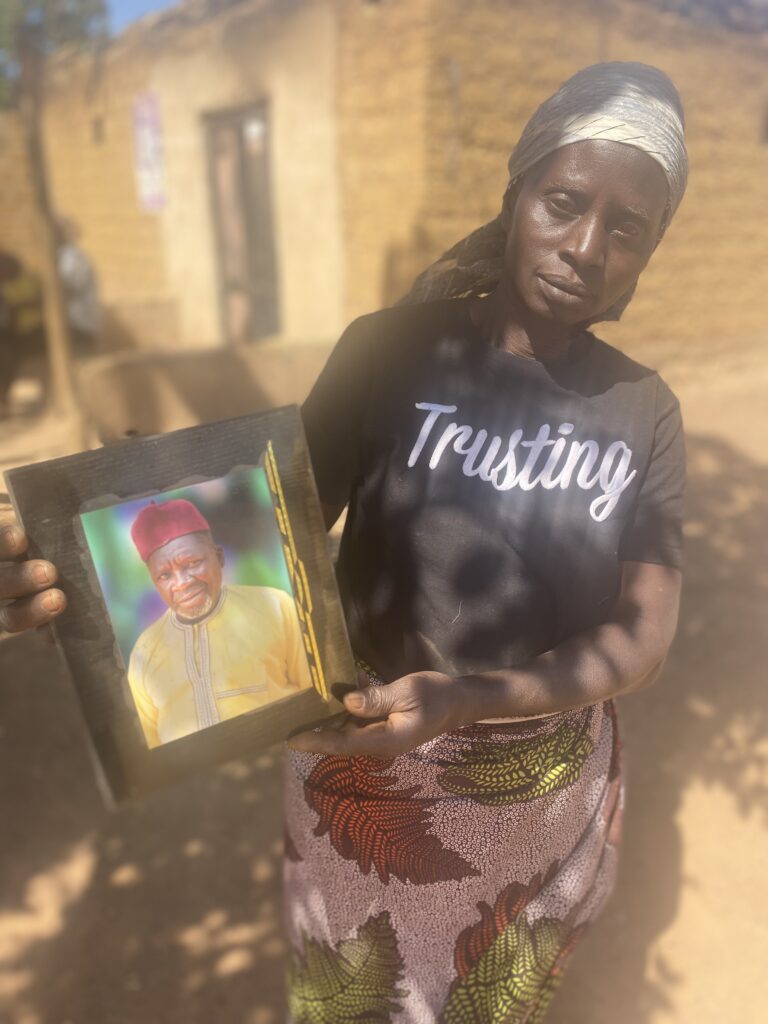
At the time of the attack, her husband was severely ill, his natural forces were abated, and it did not afford him the grace of his masculinity. Instead of slowing the family down during the process of fleeing to the unattacked neighbouring community, Mangut refused to run but urged his family to remain safe by all means.
When it dawned on her to abandon her beloved husband to the merciless grip of the bloodthirsty Fulani men to complete her equation of salvation, the necessary evil of leaving him behind left a scar on her soul.
“My husband protected us all his life. But if we had stayed back, we’d have all been killed. There were no two ways about it. My sons tried to save their father, but the demons were closing in on every side. So, we all ran to Machande,” Tabitha said.
A DECEMBER TO REMEMBER
40-year-old Joy Stephen of Miyanga will not forget about her husband for a long time, regardless of her desire to dull the pain. While the villagers were running towards Michande, Nafor James, her husband was unfortunate to be hit by a bullet fired indiscriminately at the terrified villagers.
“He heard gunshots and was running away, but he did not make it. In the process of escaping, they shot him to death. He and others who did not survive were mass buried,” she told this reporter.
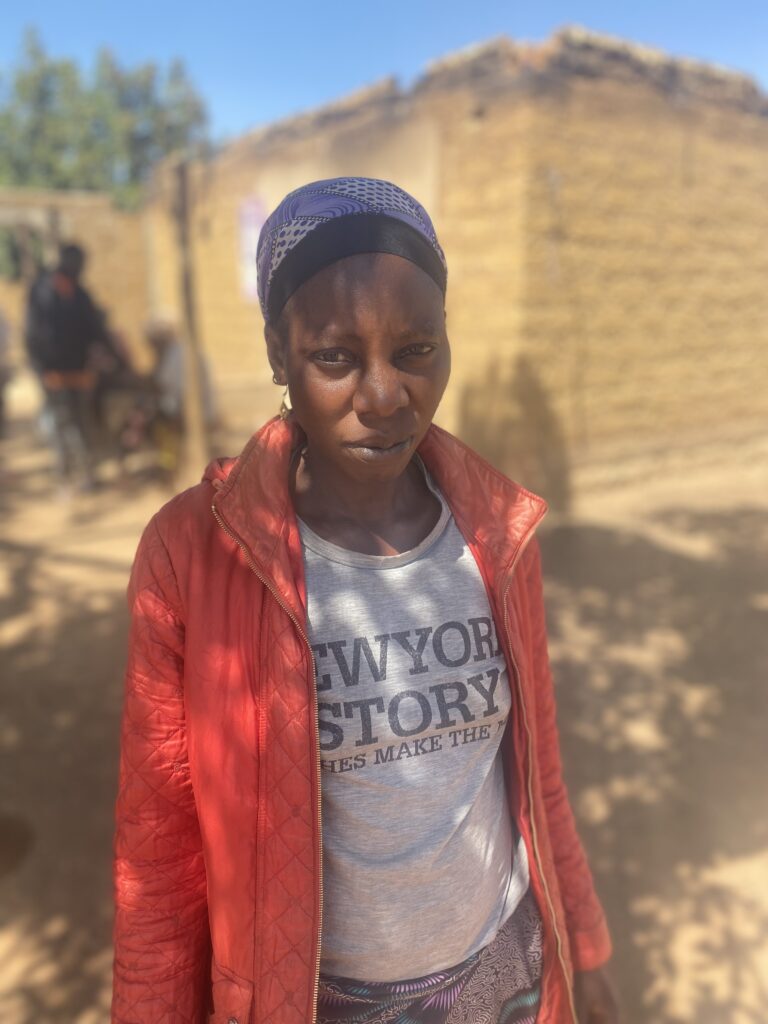
With five children to fend for all by herself, she did not know how she would cope with her new reality but consoled herself that God would provide for her needs.
Names of Miyanga deceased, as listed by Dickson Mutong are: Maren Paul, Solomon Langwen, Mildred James, Emmanuel Jalang, Nafor James, Samuel Momot, Fideles Jalang, Mafulul Langwen, Machif Mangut, Gaius Adamu (father), Matawal Gaius (son), David Jalang, and Sule Shehu were all killed by the Fulani armed men in Miyanga. The names of other victims in other villages in the attacks are all chronicled here.
THE BLOODBATH IN TAHORE
The Fulani militia arrived from Josho, Manguna, Laka, and Gawarza at Tahore secretly and caught the unsuspecting villagers off guard. The villagers who first saw their strange faces kept contemplating if they were harmless or dangerous for hours until the chilling realisation hit them. By this time, horror had taken over the village.
Duru Mafulul, 27, believed that it was this slow realisation that led to the deaths of 23 people from Tahore, including his father, uncle and aunt. Daniel Mafulul, his father, was soaked in his own blood by the axe-waving men who hacked him when he tried to escape.
Sabo Mafulul, his aunt, Duru said, would have escaped, but after a stray bullet from a herder hit her, she fell to the ground in pain before some Fulani men with machetes butchered her. Ushak Mafulul, his uncle, was not spared, and, like other men with a grimmer fate, the Fulani men ruthlessly cut him with their machetes to death.
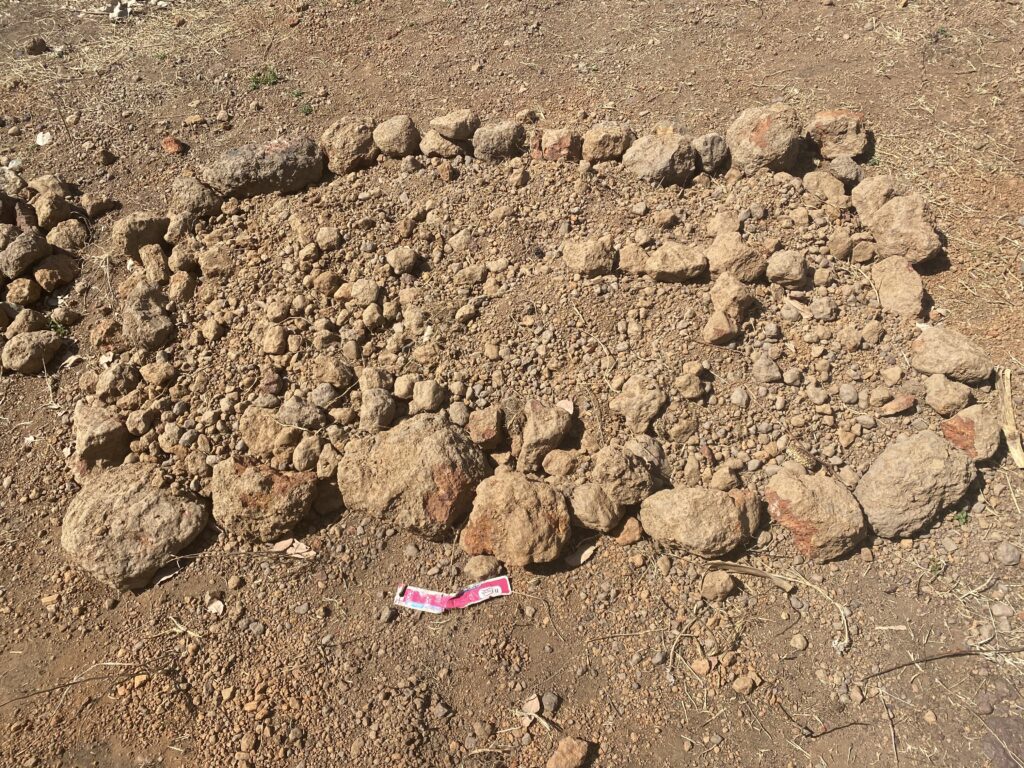
“It feels like my life has ended because I have no one to run to. I’m not sure I will look at their pictures anymore because they will always remind me that I no longer have a life. I could not even give them a befitting burial,” Duru told FIJ.
Duru said his father and uncle were no cowards but died because God had predestined their passing to happen the way it did. Many children and women escaped the Fulani-inflicted terror, and he believed they were led to safety by God. Some of the women had to hide inside the pit dug by illegal miners of tin to escape – something that usually collapses on the miners.
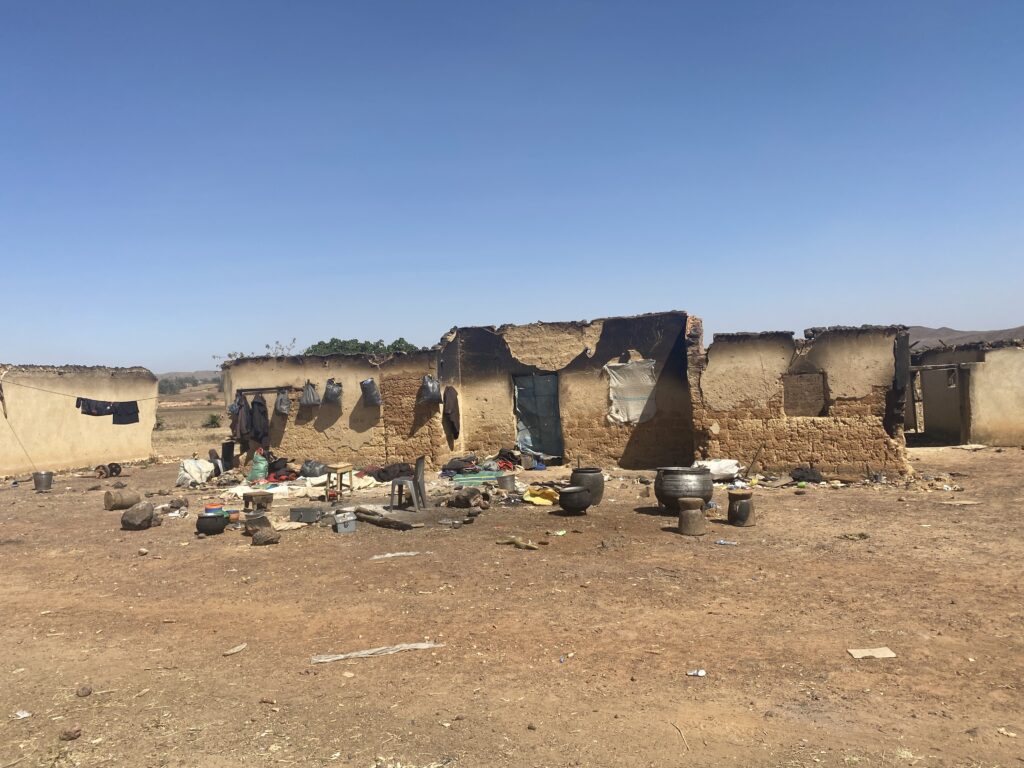
“The Fulanis in the neighbouring communities prevented our people from running for their safety,” Duru said.
“I don’t know why they attacked us. But only God saved us. If they carried out what they had in mind, we’d have been wiped out.”
CAMPAIGN OF DESTRUCTION
Where or how will Paul Macham, a 33-year-old Tahore man, start his life after the horror that swept his village? An Irish potato farmer who always looked up to being in the company of his wife and two kids can no longer do so because his memory will always haunt him.
Once the Fulani men launched their destructive campaign in Tahore, he whispered to his wife to come out and follow his lead, but she could not follow through. The Fulani men had surrounded the village and were already terrorising it, and with a two-month-old baby in hand, she could not afford to run without a plan. Instead, she entered one of the houses in the village and hid there in the hope that the invaders would leave after terrorising her village, but their evil knew no bounds.
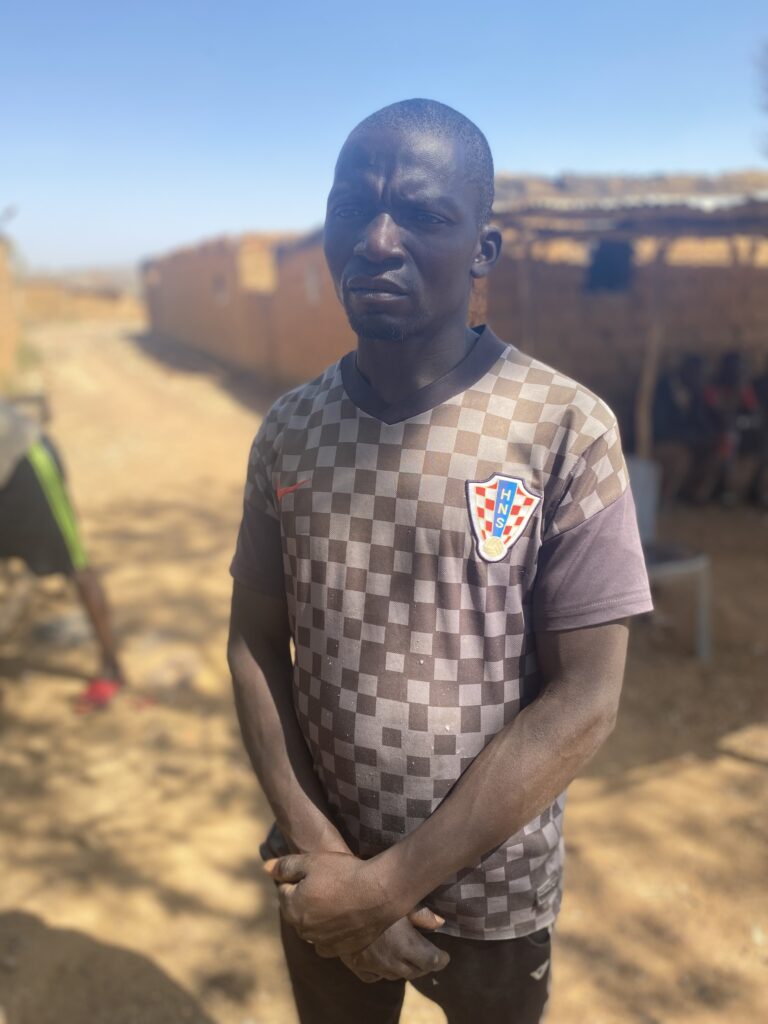
When calm had returned to the now-desolated village, Paul went there in search of his family. He did not see his wife or kids among the corpses of his villagers that lay strewn on the floor. His hope was shattered when he saw the remains of his charred wife, two-month-old son and daughter.
“My wife, daughter, and son were not spared. They were killed, then burned in the house where they found them,” Paul told FIJ. “I had to bury them afterward when others were burying their people. We mass-buried our loved ones.”
Paul did not speak English to this reporter. An interpreter did. But when Paul talked, it was without emotion, unlike other people who had spoken to this reporter before him. He looked sharp and spoke without making any gestures. One could tell he had a million thoughts in his head that made him too numb.
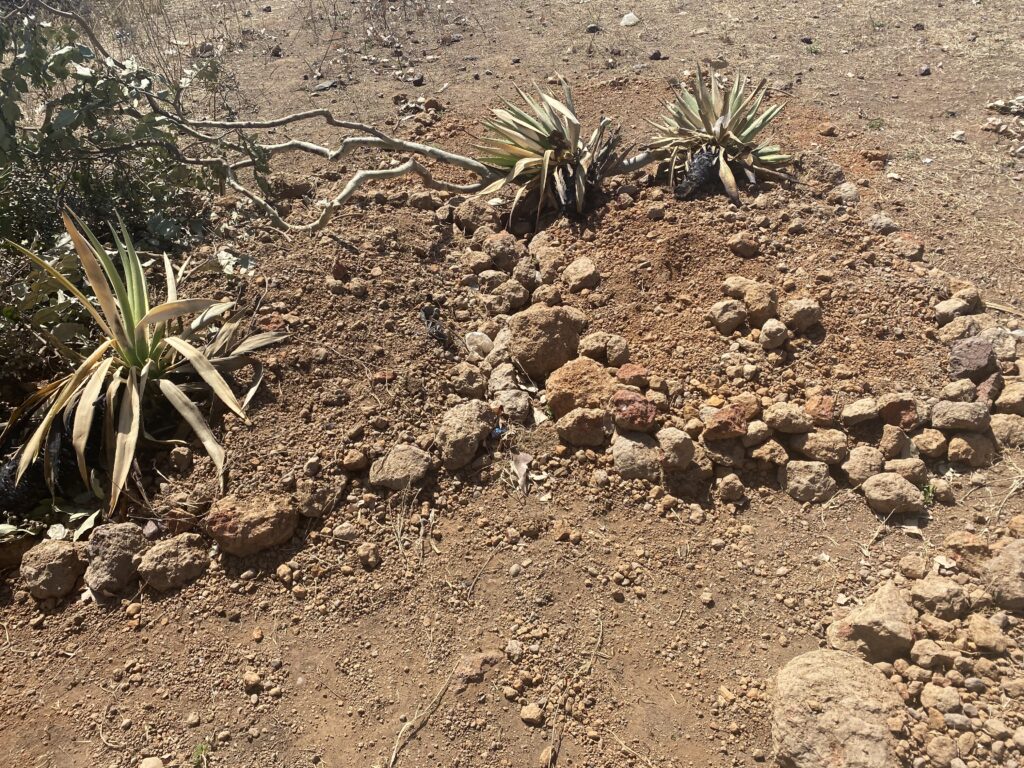
During the attack, Paul took it upon himself to ensure the safety of other women and children. He guided them to pass through the only narrow road the Fulani men did not block to the next village. But it was not an easy task. The Fulani pursued him and, in the process, shot at some of them. The resulting fear separated the group of women and kids with him. Upon returning to look for the group that left him, he found five of them dead.
“Some of the women that day were pleading with the Fulani men not to obliterate them. Some of them even called the Fulani men by their names because they knew them and could not believe that people who knew them wanted them dead,” Paul said.
BLOOD ON THE PLATEAU
Malau Mazwed, a native of Magi-mbar village in Bokkos LGA, narrowly escaped the clutches of death at the hands of armed Fulani invaders. Malau, 48, held out hope of escaping the horror of the night but ran nonetheless, knowing some of his relatives would meet their doom.
Malau ran for dear life into a forest to hide, and some Fulani men followed after him and other men who headed for the same route. He said the Fulani invaders were relentless; they shot at them as they pursued them. One of the random bullets hit him on the hand; he screeched in pain before falling to the ground, where they mistook him for dead.
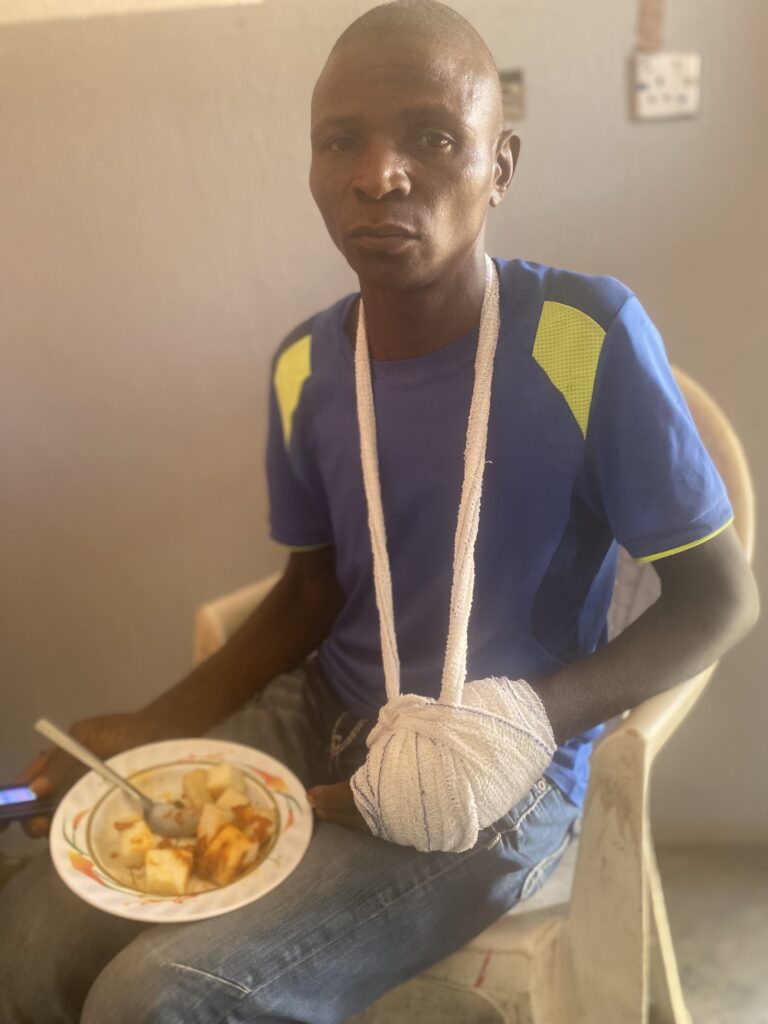
He said the moon shone brightly on Christmas Eve for him to see a sight that almost stopped his heart. A room belonging to his family, he said, became the macabre stage for the incineration of six relatives, and his village became a graveyard.
“Many people were killed, and houses were lit with people screeching in pain in them. Six of my relatives were charred to death in a room. In all, they killed 35 people in my village. In a neighbouring village, they killed many people, including a brother and an uncle,” Malau said.
A HARVEST OF DEAD BODIES
As with many of the now-empty villages this reporter visited in Bokkos and Birkin Ladi, Chirang in Bokkos LGA was no exception, except that the houses were not burned. Nuhu Dang, the community speaker, said it was because the men in his community withstood the Fulani men for some time before they fled the village.
But this did not reduce the number of dead people in the population. He said that many women and children ran away when the attacks started to a river from the village, hoping the invaders would not get to their hideout. It was beside that river that the Fulani beheaded many of them and shot some of their children to death.
“In total, they killed 23 people from Chirang, many of whom were women and children. They injured so many people severely who, by the grace of God, will make it. They are now at the Jos University Teaching Hospital (JUTH),” Dang told FIJ.
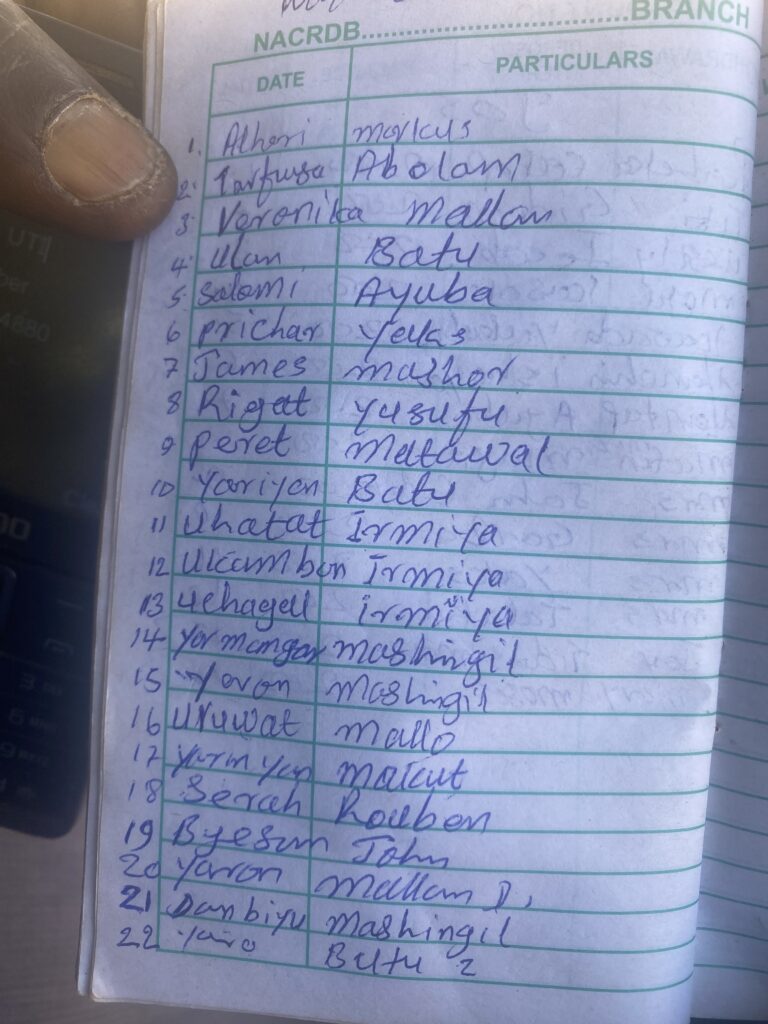
The attacks started in Chirang after Regard Yusuf, a 9-year-old schoolboy, was tricked into leading the attackers to his mother’s hideout, along with other women, on Christmas Eve in Mangur. At the end of their brutal raid, 23 women, including the harmless boy, his mother and a nine-month-old baby, were slaughtered. A woman who fell into a ditch but survived told residents the story.
VICTIMS OF CIRCUMSTANCES
Adamu Ishaya and Ezekiel Ishaya, his 45-year-old brother, took different routes with the same goal of escaping when the Fulani marauders greeted Tuje 2, their village in Bokkos, with terror, but Ezekiel did not make it out alive. The Fulani invaders gunned him down alongside Thomas Awang, 80, Mary Luke, 38, and Emmanuel Atajan, a nonagenarian.
Solomon Marren was either too weak to speak or disinterested when this reporter approached him, but he did anyway. When he spoke, it then became clear he was still reeling from the shock of losing his entire family at 55.
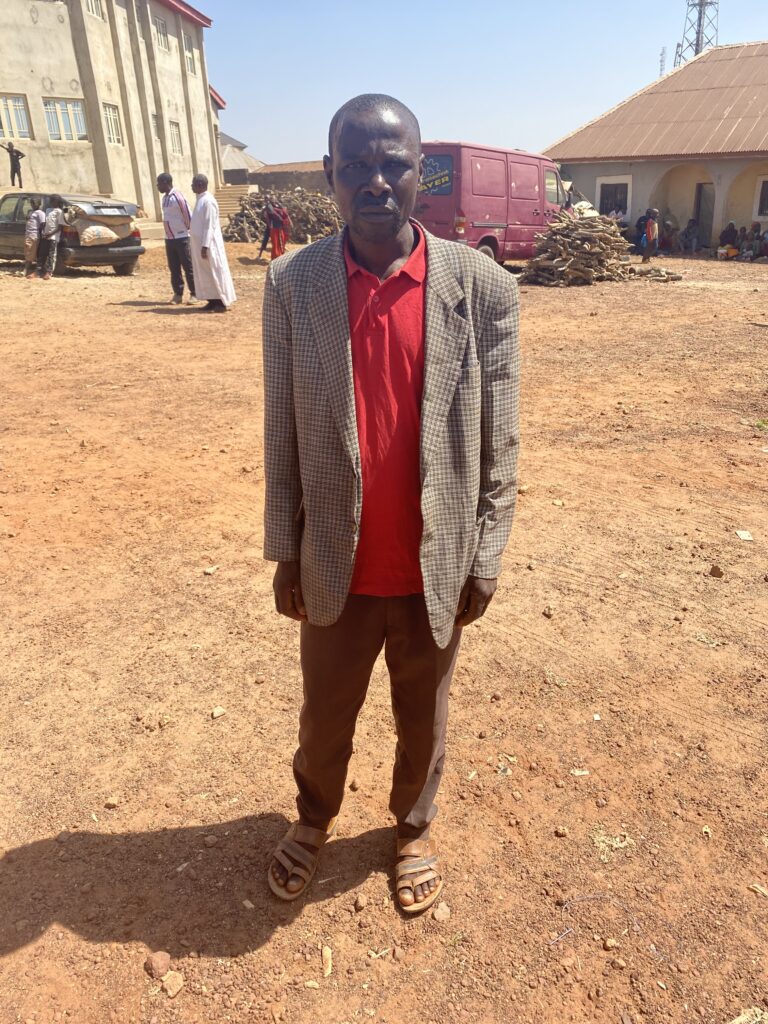
He tried to escape with his wife and children when the Fulani began to burn some houses and kill people in their raid at Tamiso Mangor, his village, but they could just not outrun the bloody Fulani men. His wife and children, even though he would not mention his number of kids, were shot and hacked to death.
“After the Fulani left, the men returned and started searching for their people. Many of us saw the dead bodies of some people from their communities. I found some members of my family, and their bodies showed the Fulani shot and then hit them with an axe to death,” Marren said.
DARES MANDARA
Dares Mandara in Bokkos was not spared, as it is situated to the east of Bokkos. The armed men killed three people – two from the same family – on December 24. At 9 am the following morning, when some of them returned to the village to gauge the level of damage done, the invaders returned with ammunition and killed eight of them. An elder in the village said that the second attack would not have happened if the security officials that came to their aid on 24 remained until morning.
He said no one in his village expected the attack. Even worse, he said, was that their supposedly peaceful Fulani neighbours helped the Fulani men without attacking them.
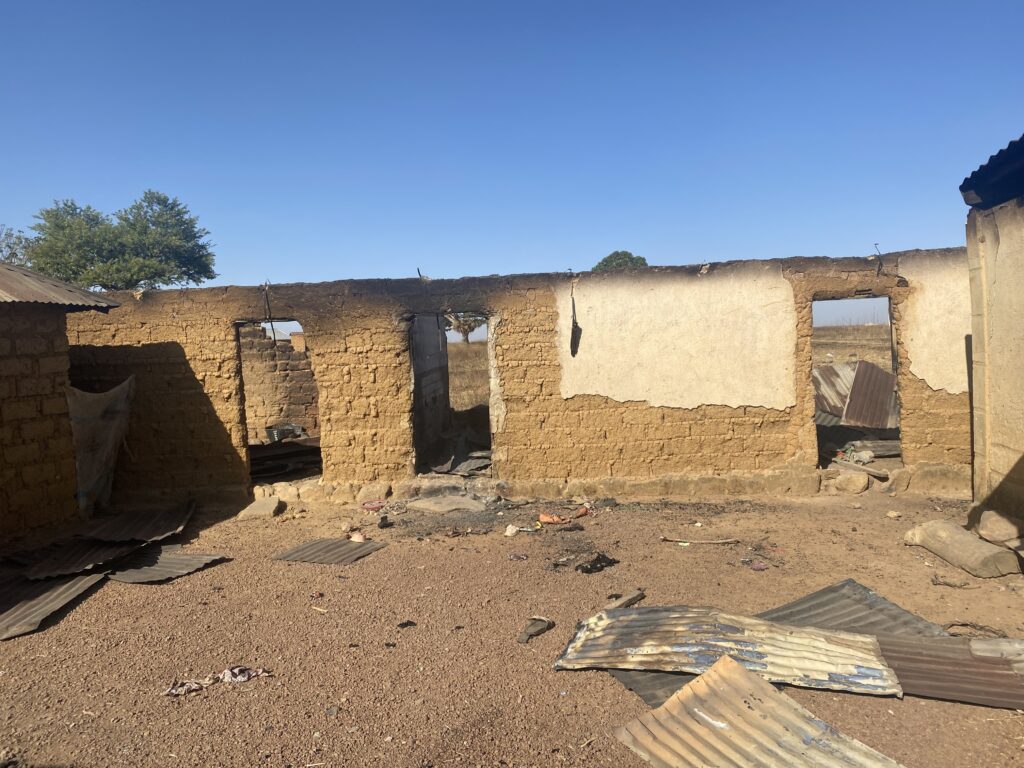
“We are surprised that the people we live together with were the ones that attacked us. There is a boundary separating us from them, but we still live in one community. I recognise many of them; they are not outsiders. We first heard gunshots from the houses of our Fulani neighbours,” he told FIJ.
The elder, who said the issue is not between Christians and Muslims but that of land grabbing, said the Fulani men destroyed farms and looted stored food.
THE FULANI SIDE OF THE PROBLEM
This reporter attempted to speak to Fulani men between January 15 and 19 but found none because, at the time, people were rarely in the villages, both in the Bokkos people settlements and the nearby Fulani settlements. In fact, out of the 12 villages this reporter visited, six were empty, except for Makunda, where abandoned dogs were waiting for a miracle. The empty villages are Dares 1, Lungai, Wang, Waya, Makunda, and Tuje; thus, it was impossible to establish any communication.
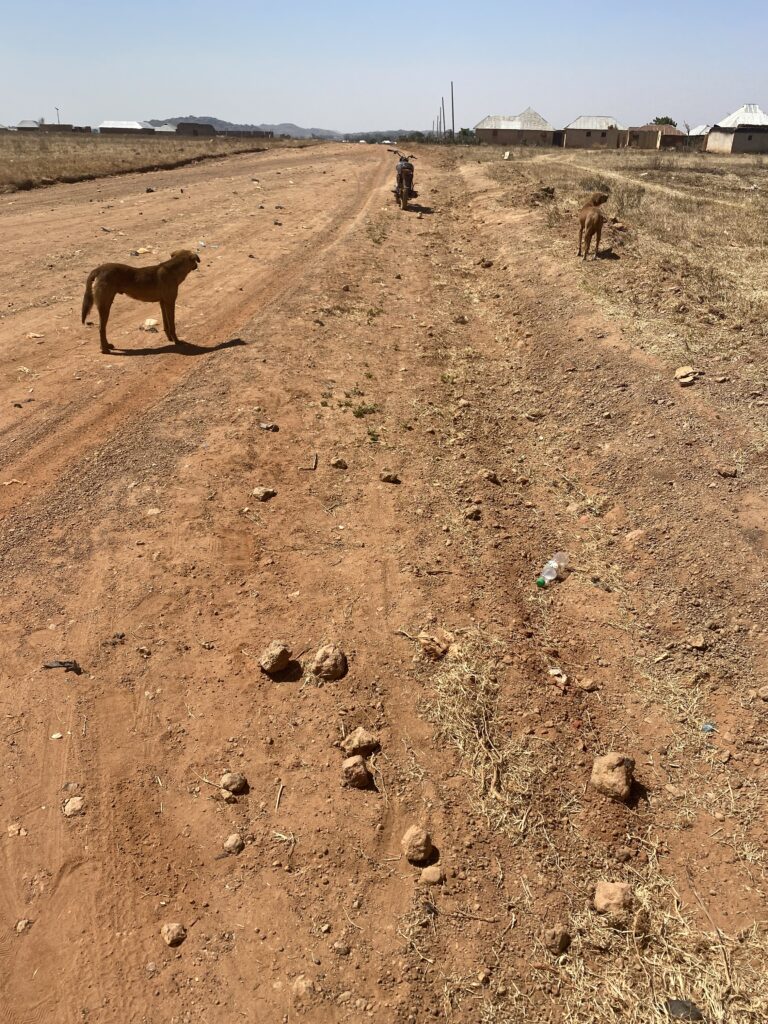
However, in a text by the Coalition of the Fulani Groups on January 7, as obtained by FIJ, the attacks began after the killing of one Bashiru Bello on December 21, 2023, at Kawel in the Mushu ward of Bokkos LGA by “militia from Mangu and Bokkos local government areas.”
According to the statement, Bello’s family was mourning him at Ndun in Tangur ward on December 23, when the same cattle rustlers attacked his family and killed eight Fulanis whose corpses were recovered by the Divisional Police Officer of the Nigeria Police Force Bokkos Division and Sector 5 Commander of Operation Safe Haven in Bokkos.
The cattle rustlers, the statement says, also attempted to snatch cattle on December 24 from Mushu village. An attempt by the owners to rescue their cattle resulted in the killing of three Fulanis among the owners.
“In the early hours of December 24, Makada, Metalem Kop, Kop Mandarken, Moun, Matol, and Ndun villages were attacked by mobs in their hundreds. People were displaced more, especially women, children, and the elderly. Twenty-two people were killed in the aforementioned villages. This triggered the crisis that continued throughout the day until the joint efforts of the Nigerian military and police brought it under control,” the statement reads in part.
FURTHER CLAIMS
The violence in Plateau State has remained over the years but continues to change in dynamics, said Muhammadu Nuru Abdullahi, the Plateau State chairman of the Miyetti Allah Cattle Breeders Association of Nigeria, Barkin Ladi branch. And the “fight,” he said, was usually about “who owns where?”
“In 2013, they started propagating that it was a farmer-herder crisis, and it has remained that way since. This was how they profiled the herders that roamed about destroying farm crops. But there is nothing like a farmer-herder crisis in Plateau State,” he said, a position also shared by a Reverend Father in Bokkos who asked to be anonymous.
“Since time immemorial, crises between farmers and herders have existed, but they are usually resolved amicably. Why has it taken on a new dimension where people carry sophisticated firearms, killing and destroying property?” He asked.
He said the December 24 attacks in Bokkos and parts of Barkin Ladi were offshoots of an issue between two people in Mangu. According to him, two people were fighting in Mangu, but one killed the other, and the relative of the deceased killed their relative’s killer.
Muhammadu also said that between April 14 and 24, Fulani were cleansed in Mangu and have now been wiped out of 8 of the 11 Mangu districts, a claim strongly contested by a Reverend Father.
Muhammadu said that over 350 Fulanis were killed, and property worth billions was destroyed. 25,000 cows were lost – over 115,000 cows in the attacks. The attacks are reprisal in nature, and the major issue is the cattle rustling, he added, although this claim is contestable.
“Some Mangu Fulani residents were caught up in this situation, and they are indigenous Fulanis, not migrants. They have stayed here for over a thousand years. They have a dynasty that comprises the present Mangu, Bokkos, part of Barkin Ladi, Pankshin and Das LGA. The last leader was Arbo Dabbode, and he was used by the colonial masters to achieve their indirect rule,” said Muhammadu.
A Catholic priest, who prefers to be anonymous, said that if the Fulanis were indigenes, as Muhammadu claimed, they would have been within the structure of leadership and not constantly accused of land grabbing.
“Cow rustling is a general issue, but if your livestock is rustled, they can seek refuge in the law. If criminals rustled cows, the entire community did not rustle the cows because the entire local government did not agree to rustle cows,” he said.
“Sometimes, indigenous criminals congregate with the Fulanis to rustle cows in places of interest to them, and innocent citizens are made to bear the brunt. Even if cows are rustled, humans shouldn’t be killed for that. There is no justification for the manslaughter that took place under the dubious claim of cow rustling.”
REPRISAL ATTACK OR CAREFULLY ORCHESTRATED MINDLESS KILLINGS?
A Bokkos elder who asked to be anonymous said that the attacks on Bokkos and Barkin Ladi started on December 23 after some Fulani hiding in Bokkos killed 16 Mwaghavul people at Kambar Pelli, a place situated at the boundary of Bokkos and Mangu.
According to this elder, the Fulani killers showed up close to the settlement of the Fulani people, who had not caused any issues in Kambar Pelli some days before their eventual attacks. The Mwaghavul people had an issue with their coming because even the neighbours, the Fulani residents there, did not know these people.

“The Fulani said that they had spoken to the security, and the security asked the strange Fulani to leave. On March 23, the new Fulani killed 16 people in Kambar Pelli. By the time they had finished their attack by 11 pm, there was not a single Fulani resident in the area, including those who had been residents there for a long time. So, everyone concluded that the Fulani entirely carried out the attack,” he said.
“In annoyance, the indigenes went to the houses of the Fulanis. Although they did not find them there yet, they burned their houses. The people the Fulani attacked in the east of Bokkos are so far from Kambar Pelli, so even if there was reprisal, as they may claim, there is no correlation with the wanton attacks with sophisticated weapons in the far east of Bokkos, who were unaware of everything.
“If people stole their cows, they should have said that before the crisis, and if they call it reprisal, then they know the criminal elements who rustled their cows. How easy is it to get these guns in a day or two, all in the name of a reprisal? Then the plan was orchestrated because they attacked more than 20 villages that same day. It cannot be a coincidence.
“They are trying to frame some stories. They said the Kambar Pelli people slaughtered their cows after rustling on December 23 for Christmas, but this isn’t true because they cannot kill cows two days before Christmas. These Fulani living in the community beg other Fulani to do this. If they have casualties, where are they? Why don’t they have IDP camps since they claim they were displaced?”
PLATEAU’S ANNALS OF HORROR
In recent times, Plateau has become a source of heartbreaking news due to reprisal attacks and violence. Once known as the “home of peace and tourism,” violent attacks in Plateau State began in 1991 when Ibrahim Babangida, the then military head of state, created Jos North Local Government Area. This stirred tensions between the Berom, Anaguta and Afizere tribes, the indigenous tribes, and the Hausa-Fulani community. This action led to a riot in 1994, which marked the beginning of a series of politically motivated killings in Jos. This was after the appointment and subsequent reversal of Alhaji Aminu Mato, a Hausa and Muslim, as chairman of the Caretaker Management Committee of Jos North Local Government.

The indigenous ethnic groups protested after Lieutenant-Colonel Mohammed Mana, the state’s military administrator, announced the appointment. And when it was reversed, the Hausa/Fulani people went crazy. The fusion of this two-way animosity resulted in a riot on April 12, 1994, that killed five people and destroyed two marketplaces, an Islamic school and a mosque.
The attacks didn’t end there. According to the Plateau Peace Building Agency (PPBA), in 1995, a long-running land dispute escalated into a full-fledged battle between Mwaghavuls in Mangu and Ron people in Bokkos villages. The crisis caused the loss of several residences and properties. The 1997 Gyero road crisis in Bukuru, Jos South LGA, resulted from a resource-based dispute between the Berom people and Hausa-Fulani ethnic groupings. The event claimed the lives of around six residents.
In 2016, the violence in the state appeared to have taken a new direction. In 2017, a previously quelled farmers-herders dispute erupted in Riyom LGA. In 2018, one of the state’s greatest issues was a revenge attack on Dura Du, a Jos South village, where a high-ranking military commander, Idris Alkali, was suddenly assassinated in September. Before and following that, there were several resource-based disputes in some areas of the state. The violence, which took around 57 lives, spilled over into the next year.
In March 2020, fighting between farmers and herders erupted in Riyom LGA and lasted the entire year. By 2021, a succession of crises had shaken the state. Among these were clashes and reprisals between Fulani herders and indigenous Irigwe residents in Bassa LGA, which resulted in 30 fatalities, livestock rustling and property losses. More than 80 individuals were reportedly killed in recurring conflicts between Berom, other local tribes and Fulani militias in Barkin Ladi, Jos North and Riyom local councils.
Between January and June 2022, at least 58 individuals were murdered in seven violent attacks and counterattacks between farmers and herders in Bassa, Jos North and Shendam local councils. In 2023, over 400 people were killed as a result of violent assaults and reprisals in Barkin Ladi, Bokkos and Mangu local government areas, with the December attacks being the most pronounced. Unfortunately, some people have also lost their lives to similar attacks in 2024.
This story was produced with support from the Wole Soyinka Centre for Investigative Journalism (WSCIJ) under the Collaborative Media Engagement for Development Inclusivity and Accountability project (CMEDIA) funded by the MacArthur Foundation
Subscribe
Be the first to receive special investigative reports and features in your inbox.


